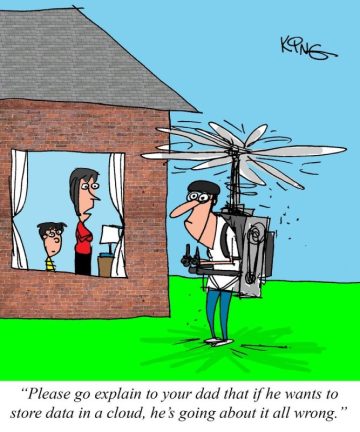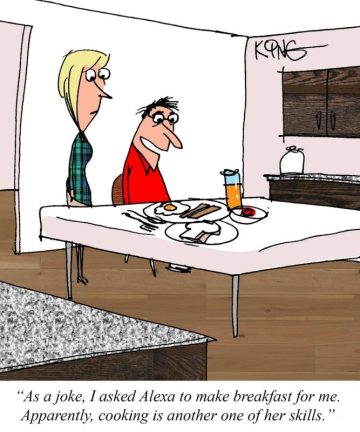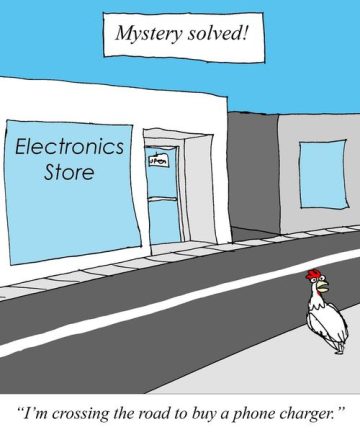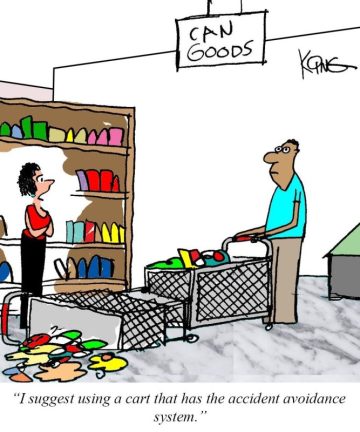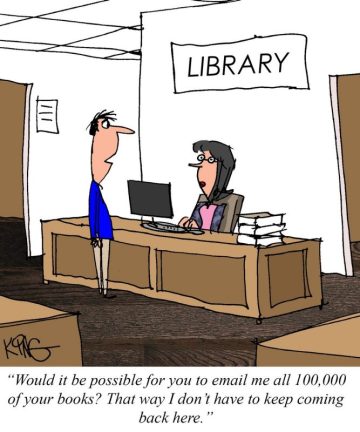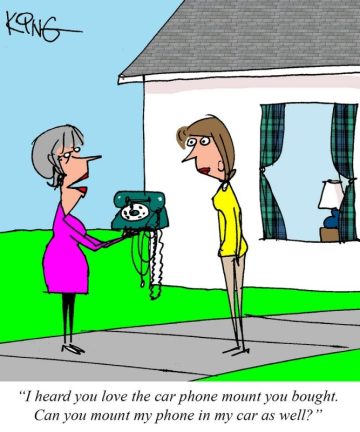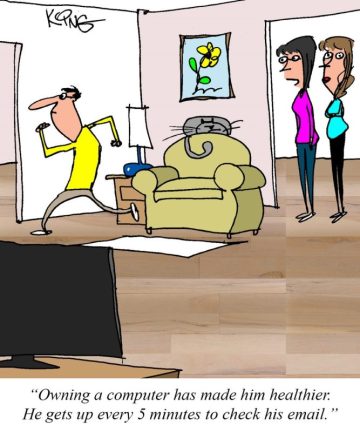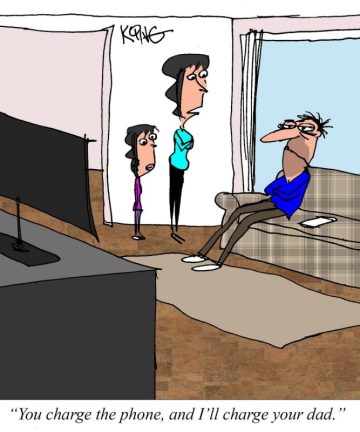Real Estate
What an appraiser does and why you need one

In order to obtain a mortgage, you’ll likely need to hire a professional appraiser to assess the home’s value.
Lenders typically require a professional appraisal to confirm the current market value of your would-be home. This is because they want to protect their investment and be certain that they could get their money back by selling the property if you default on your loan.
Appraisers look at many factors to determine your home’s market value. Above all, they look at comparable sales, often called “comps” for short. These figures show how much similar properties sold for in your area in the last 90 days. They’ll compare your home with other homes recently put on the market in terms of square footage, condition, appearance and amenities.
In some cases, it may be worth hiring a professional appraiser when you’re selling your home and trying to determine a fair asking price. Although most real estate agents can also provide you with a comparative market analysis of your home, an appraiser can step in to give an unbiased assessment if you receive conflicting estimates from different agents.
Real Estate
Finding Your Perfect Neighborhood: A Comprehensive Guide
Deciding on the right neighborhood for your next home is as crucial as choosing the house. The community you move into impacts your daily life and your long-term satisfaction with your home. Here are key factors to guide you through decision-making, ensuring you find a neighborhood that fits your needs and lifestyle.
1. Budget Considerations
Start by defining your budget, which will narrow your search to neighborhoods that align with your financial capabilities. Remember, the cost of living varies widely between different areas, so consider both property values and the general living expenses of the neighborhood.
2. Commute and Accessibility
Your daily commute plays a significant role in your quality of life. Look for neighborhoods that offer ease of access to your workplace, schools, and other important destinations. A shorter, more convenient commute can save time and reduce stress.
3. Safety and Security
Safety is paramount. Investigate crime statistics and speak with local law enforcement or community members to get a sense of the neighborhood’s safety. A safe environment is essential for peace of mind and the well-being of your family.
4. Amenities and Lifestyle
Match the neighborhood amenities with your lifestyle needs. Whether it’s parks, restaurants, shopping centers, or cultural attractions, choosing an area that caters to your interests and hobbies can greatly enhance your living experience.
5. Educational Opportunities
For families with children or plans for them, the quality of local schools is a top priority. Research school districts and educational opportunities in the area, as access to quality education is a key factor in your decision.
6. Growth and Development
Investigating the neighborhood’s potential for growth and development can give insights into future property values and community improvements. An area with a positive outlook can be a good investment for your family’s future.
7. Community and Neighbors
A strong sense of community can make a big difference in your happiness. Try to gauge the neighborliness and social activities within the area. A welcoming and active community can greatly enhance your home life.
8. Matching Your Lifestyle
Consider whether the neighborhood reflects your desired lifestyle. From bustling city life to peaceful suburban or rural settings, choosing an environment that aligns with your preferences is key to feeling at home.
9. Trust Your Instincts
Finally, trust your instincts. Visit prospective neighborhoods, talk to locals, and try to envision your life there. Your personal comfort and feelings about the area should significantly influence your decision.
Seeking the advice of real estate professionals who understand local market trends can provide valuable insights into different neighborhoods. Taking the time to research and consider these factors will help you choose not just a house but a home where you and your family can thrive.
Real Estate
One-Year Credit Improvement Plan for Aspiring Homebuyers
Real Estate
Navigating Real Estate Appraisals: A Comprehensive Guide
In the intricate dance of buying or selling a home, real estate appraisals play a pivotal role in setting the stage for a fair transaction. Understanding the ins and outs of real estate appraisals can demystify the process and help you confidently navigate your home journey. Here’s the essential information you need to grasp the world of real estate appraisals.
The Purpose of an Appraisal
Real estate appraisals are conducted to pinpoint a property’s market value. This valuation is crucial for multiple reasons, serving as a cornerstone for mortgage lending decisions, property tax assessments, estate planning, and even savvy investment analyses. An appraisal gives all parties involved a clear picture of a property’s worth at a given time.
The Role of the Appraiser
Central to this process is the appraiser, a licensed and certified professional whose job is to offer an impartial and informed estimate of the property’s value. Appraisers are trained to remain unbiased, ensuring their valuation is based solely on data and observable conditions, not personal or external pressures.
Factors Influencing Appraisal
An appraisal isn’t just a number pulled out of thin air; it’s a meticulously calculated figure influenced by a myriad of factors. These include:
- Location: The adage “location, location, location” holds, as the property’s surroundings significantly affect its value.
- Size and Layout: Larger homes and those with more desirable layouts generally command higher prices.
- Condition and Age: Newer and well-maintained properties tend to be valued higher.
- Features and Improvements: Upgrades and unique features can boost a property’s worth.
- Comparable Sales: Recent sales of similar properties in the area provide a benchmark for valuation.
The Appraisal Process
The appraiser’s evaluation is thorough. It begins with an inspection of the property to assess its condition and note any unique features. This is followed by research into comparable recent sales in the vicinity and an analysis of the broader market trends. The culmination of this process is a detailed report that outlines the appraiser’s findings and the reasoning behind the determined value.
Lender Requirements and Appraisal Costs
For those obtaining a mortgage, be prepared for the lender to request an appraisal. This step is to ensure the loan amount doesn’t exceed the property’s value, protecting the lender’s investment. The cost of an appraisal can vary but is usually the responsibility of the buyer, seller, or lender, depending on the transaction’s specifics.
Keeping Current
Real estate values are always in flux, influenced by market conditions, making appraisals time-sensitive. For the most current and precise assessment, reaching out to a local appraiser is advised.
Understanding real estate appraisals is key to navigating the property market. Whether you’re buying, selling, or refinancing, knowing the value of your property and the factors that affect it puts you in a stronger position to make informed decisions.
Real Estate
Transforming Urban Living: The Rise of Co-living Spaces
In the heart of bustling cities, a new trend is reshaping how we think about housing and community. Co-living spaces, the latest urban living evolution, offer a fresh take on the traditional apartment model. These communal living arrangements are not just changing the real estate game; they’re addressing the needs of a new generation of city dwellers seeking affordability, convenience, and a sense of community.
What is Co-living?
Co-living is a modern concept where individuals share common spaces like kitchens, living rooms, and workspaces while having private bedrooms. The model emphasizes community and shared experiences among residents, aiming to create a more connected and fulfilling urban life. It’s especially appealing to millennials and young professionals who value social connections, networking opportunities, and a lifestyle that balances privacy with community engagement.
The Impact on Real Estate
The surge in co-living spaces is more than a passing trend—it’s a response to the challenges of urban living. High costs and limited space in city centers have made traditional housing options less accessible for many. Recognizing this, real estate developers and investors are now focusing on creating purpose-built co-living properties. These projects are not just innovative solutions to housing demands; they represent a lucrative new direction for the real estate market.
Addressing Urban Challenges
Co-living offers a promising solution to some of the most pressing urban issues, such as housing shortages and the rising cost of living. By maximizing space efficiency and promoting shared resources, co-living spaces can offer more affordable living options without sacrificing quality or location. Moreover, these arrangements encourage sustainable living practices, from reduced energy consumption to shared goods and services, contributing to a greener urban footprint.
The Future of Urban Living
As co-living spaces proliferate, their impact on the urban landscape is undeniable. They are not only altering how real estate is developed and consumed but are also setting new standards for what it means to live in a city. The community-focused, sustainable, and flexible nature of co-living reflects the changing priorities of urban residents, suggesting a lasting shift in the fabric of city living.
Whether you’re considering an investment in the co-living market or looking for a new place to call home, it’s clear that co-living spaces are at the forefront of redefining urban living. With their blend of affordability, community, and sustainability, these spaces are poised to play a central role in shaping the future of our cities.
For those interested in exploring co-living opportunities, whether as a resident or investor, consulting with a local real estate agent can provide valuable insights into the evolving landscape of urban housing.
Real Estate
How to Navigate Home Ownership in Tough Economic Times
Becoming a homeowner feels more like a dream than a possibility in today’s economic environment. High-interest rates, escalating living costs, and intense competition for fewer available homes make the path to ownership daunting. Yet, the dream is not out of reach. Here’s how you can turn the tide in your favor and step closer to owning your dream home, even when the economic climate is challenging.
1. Evaluate Your Financial Health
Your journey begins with a thorough financial self-assessment. Examine your debts, credit score, and savings capacity. Understanding your financial standing is crucial—it highlights habits needing change and might inspire you to find extra income sources.
2. Save Strategically
Saving for a home isn’t just about stashing away money for the down payment; it’s also preparing for additional expenses such as property taxes, insurance, and closing costs. Look into loans with favorable terms, like FHA loans, which require lower down payments if your credit score meets specific criteria.
Additionally, explore government programs and tax credits designed to assist first-time homebuyers. For instance, certain programs allow penalty-free early withdrawals from retirement accounts for home purchases. These resources can significantly lower the financial barriers to home ownership.
3. Seek Expert Guidance
The complexity of buying a home, especially in a tough market, cannot be overstated. From understanding mortgage options to navigating the closing process, expert advice is invaluable. Build a team of trusted professionals—a financial advisor, a real estate agent, and a mortgage broker—who can guide you through each step.
4. Expand Your Horizons
Finally, keep an open mind about what your dream home looks like and where it might be located. Broadening your search to less competitive markets or considering homes that might need a little TLC can reveal opportunities that others overlook.
Becoming a Homeowner: A Dream Within Reach
Though the economic landscape might seem forbidding, owning a home is still possible with the right strategy and support. By taking a deliberate approach to your finances, seeking assistance, and remaining flexible in your home search, you can make the dream of homeownership a reality. Remember, every homeowner’s journey is unique—yours might be beginning.
Real Estate
3D Printing: The Future of Affordable Housing Is Here
The potential of 3D printing in making affordable housing more accessible is genuinely transformative. As we navigate through an era where housing prices are on a relentless rise, pushing the dream of homeownership out of reach for many, this technology offers hope.
Labor costs, constituting up to 50% of construction expenses, significantly contribute to the soaring prices of homes. With wages rising, especially in times of high inflation, the cost of building homes and construction materials escalates. Consequently, the prices of new homes increase, and even older homes become pricier.
Enter 3D printing—a game-changer in the construction industry. This technology promises to cut labor costs drastically. Using concrete, a material that’s compatible with 3D printers and boasts excellent insulation properties and durability, 3D printing can construct homes rapidly and cost-effectively. Remarkably, a 1,300-square-foot home can be built in just about 40 hours.
While traditionally, concrete may not have been the first choice for interior walls, its benefits cannot be overlooked. Besides reducing construction and long-term heating and cooling costs, concrete’s durability could enhance the longevity of homes, making them more sustainable.
The dream of affordable housing, which seems unattainable for many today, could become a reality thanks to 3D printing and other technological advancements. As we move forward, embracing such innovations could be key to solving the housing affordability crisis and making the dream of homeownership accessible to all.























